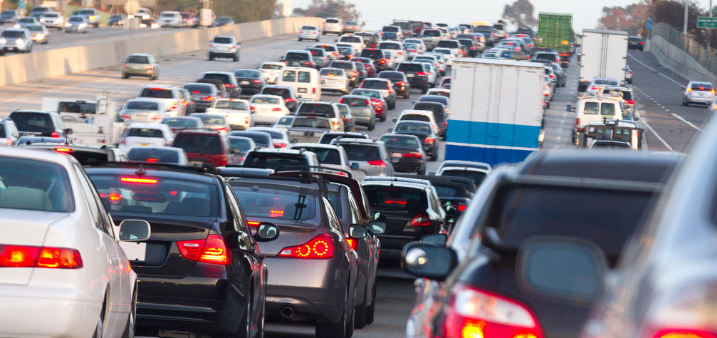This week’s highlights
- Backlogs grew in more than half of state courts during the last 12 months—Report
- Survey finds mid-level associates strongly favor a hybrid work environment
- FDA’s vaccine approval may weaken plaintiff claims, lawyers say
- Judge’s award of $1 in attorney fees is likely unreasonable, says 8th circuit
- Florida court decides how many YouTube followers makes you a celebrity
Backlogs grew in more than half of state courts during the last 12 months—Report
“Even in the best of times, the nation’s courts consistently battle case backlogs for a variety of reasons. When you add a public health crisis into that equation, it is easy to see why the backlog situation may become much more difficult to manage” (Reuters)
Pandemic related closures and delays resulted in most courts seeing an increase in the size of their case backlog last year. The data comes from a new report by the Thomson Reuters Institute, which interviewed court officials in more than 240 jurisdictions across the country.
34 percent of courts interviewed saw their backlog “increase greatly” and a further 23 percent saw modest increases in their backlog. Only a few courts saw declines last year. Looking ahead, however, most courts anticipate these backlogs to decrease in the coming 12 months as pandemic restrictions ease and additional resources become available. The full report is available from Reuters.
Survey finds mid-level associates strongly favor a hybrid work environment
“Roughly 78% of associates responding to the survey said they would prefer a hybrid work schedule, and roughly one-third of those surveyed said they were not comfortable or unsure about the safety of returning to the office.” (American Lawyer)
There’s widespread dissatisfaction with post-pandemic workplace policies among mid-level associates. That’s according to new survey by The American Lawyer published Monday.
The major gripe appeared to be a lack of clear communication from management. “[My firm] has given us the freedom to work remotely; however, they have not clearly communicated a criterion for which return to the office is expected, leading to uncertainty and related anxiety,” said one fourth-year associate. There’s detailed analysis on The American Lawyer.
FDA’s vaccine approval may weaken plaintiff claims, lawyers say
”The full approval elevates the vaccine beyond emergency-use status, meaning a tougher road for attorneys arguing wrongful termination or Fourteenth Amendment personal autonomy rights violations, some lawyers say.” (National Law Journal)
Plaintiff attorneys can expect a steeper legal battle ahead now that the Food and Drug Administration (FDA) has given full approval to the Pfizer-BioNTech coronavirus vaccine, say legal experts.
The FDA’s full approval of the Pfizer vaccine, he said, nixes a prior litigation threat that had caused some companies to delay implementing vaccine mandates.
“There been some legal challenges trying to assert a wrongful termination in violation of public policy common law claim because of the [Emergency Use Authorization] status [of the Pfizer vaccine],” Coburn said. “That issue is now off the table.
Judge’s award of $1 in attorney fees is likely unreasonable, says 8th circuit
“The judge had the authority to reduce the award for unprofessional conduct, but it shouldn’t be considered until after the lodestar calculation, the appeals court said in its 2-1 decision.” (ABA Journal)
A federal appeals court has vacated a district court judge’s $1 attorney fee award to a law firm that he thought was engaged in “incorrigible practices.” The appeals court said that the district judge should have first taken in account the lodestar attorney fees before reducing the award.
The lodestar is calculated by multiplying the reasonable number of hours worked by the prevailing hourly rate. “Based on the record before us, it is unlikely that a $1.00 attorneys’ fee is reasonable,” Chief Judge Lavenski Smith wrote for the majority.
Florida court decides how many YouTube followers makes you a celebrity
“According to the American Bar Association, Florida is unique in how it prohibits lawyers from using celebrities in ads. As a result, the state bar has been compelled to wade into murky waters, with results that can seem arbitrary and at times even absurd.” (Reuters Legal)
This week, the Florida State Bar Association’s standing committee on Advertising weighed the important question of how many YouTube followers make one a celebrity. In an 8 to 1 vote, the members decided that 25,000 was enough to qualify.
The ruling was required because of Florida’s unusually strict lawyer advertising rules. Specifically, Florida Bar Rule 4-7.15(c) states: “A lawyer may not engage in unduly manipulative or intrusive advertisements. An Advertisement is unduly manipulative if it: contains the voice or image of a celebrity.”
Author
Richard is Vice President of Sales and Marketing at InfoTrack. He has worked with law firms for more than a decade to advise on adapting to regulatory and technological change. He writes about the courts, civil procedure, and developing trends that may affect law firm operations.
View all posts






